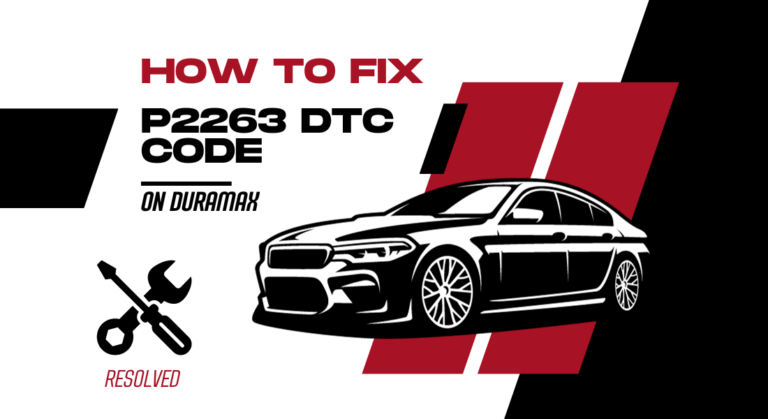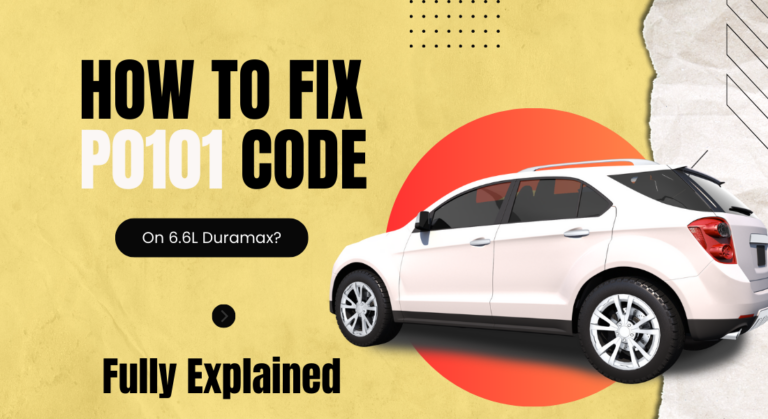Which Chevy Cruze Years to Avoid and Why? (Explained)
Since 2008, General Motors has begun producing the Chevrolet Cruze, a small car. As of 2011, it is a globally planned, developed, and constructed four-door small automobile.
There are some problems with some Chevy Cruze models that could make them hard to drive and not as good as they should be because of broken or worn-out parts. These sorts of issues may be troublesome and costly to repair, so you should be aware of which Chevrolet Cruze years to avoid.
As long as I’m here to help, there’s no need to be terrified. I’ll include the years when you should avoid buying a Chevrolet Cruze, as well as the years when you may safely acquire one. The only thing you need to do is continue reading.
Chevy Cruze Years to Avoid (List of Years)
It began as a low-cost car and is still going strong today. There are, however, several unique Chevy Cruze years to avoid. If you want to be safe while purchasing a Chevy Cruze, avoid the following model years
- 2012 Year Chevy Cruze
- 2012 Year Chevy Cruze
- 2013 Year Chevy Cruze
- 2014 Year Chevy Cruze
- and 2015 Year Chevy Cruze
Among the most common difficulties with these vehicles are gearbox and engine failures. The 2011 Chevy Cruze is one of the most notable models to avoid because of a slew of costly problems. Avoid them if you want to obtain a good bargain on your car.
What Makes These Chevy Cruze Years Worth Avoiding?
In general, the Chevy Cruze is trouble-free, although oil leaks from the engine, coolant lines, and gearbox seals are very frequent, and leaking coolant can necessitate the replacement of the thermostat housing.
The Cruze, like other mass-produced vehicles, has annoying small flaws like malfunctioning trunk release switches to keep an eye out for.
I’m now going to explain to you why you should avoid the terrible year models by going through their specific flaws.
1. Chevy Cruze 2011 Year Problems
Compared to any other model year, the 2011 Chevy Cruze has the most issues. It is the most prevalent cause of breakdowns. Around 65,000 miles, a failure occurs and requires a new vehicle.
Throttle body and intake manifold problems are among the most common in engines. Coolant leaks have been reported as a result of water pump issues, according to owners. The 2011 Cruze has more issues than any other subcompact on the market today, according to Consumer Reports.
A typical number of recalls have been issued for the 2011 Cruze, which is common of cars of this age. The recalls involve steering components, gearbox shift linkage, fuel tank welds, oil leaks, and braking assist, as well as the fact that the key can be removed when the vehicle is not in park.
The most critical of the recalls is the failure of the fuel tank welds. The whole gasoline tank can fall out of the automobile if the tank welds break, increasing the danger of a fire.
2. Chevy Cruze 2012 Year Problems
The 2012 Chevrolet Cruze is worse than average in terms of overall reliability, and there are numerous complaints from Cruze owners regarding mechanical difficulties. This has resulted in some reviewers downgrading the Cruze’s total score because to its proclivity for issues.
The Cruze’s primary flaw is its proclivity for leakage. They have oil leaks from the engine, the transmission, and the engine compartment’s oil lines. Additionally, they have a history of coolant leaks at the thermostat housing and throughout the lines leading back to the radiator.
All of these factors might contribute to the automobile running short on fluids, resulting in increased engine wear and tear.
3. Chevy Cruze 2013 Year Problems
The 2013 Chevrolet Cruze receives an average amount of owner complaints compared to other small cars, but the faults are more significant. There are fewer issues than there were with the 2012 and 2014 models.
Owners frequently express concern over a full loss of electrical power. Electrical modules regularly fail, and another weak area is the negative battery wire. Another issue that occurs in cars is the loss of power when driving. Transmission issues, such as jerky changing between ratios, are another common complaint among owners.
4. Chevy Cruze 2014 Year Problems
In 2014, Chevrolet introduced a turbo diesel engine option for the Cruze. Despite good fuel efficiency ratings, the 2014 Chevy Cruze has serious difficulties. The NHTSA has received 554 complaints, and few recalls.
The Cruze’s drive axle continues to fail, compromising vehicle safety.
Chevy warns that if the half shaft cracks and separates while driving, the car may lose power and coast to a halt, or move abruptly while stopped without the parking brake set.
The 2014 Chevy Cruze also has an issue with its airbag inflator.
5. Chevy Cruze 2015 Year Problems
Random dash light illumination and bad sensors causing shaking and smoking are among the complaints about the 2015 Cruze’s electrical system.
Owners of 2015 Cruzes have reported issues with the steering wheel locking in place or having difficulty pressing the brake pedal.
Which Years are Safe to Buy Used?
There are Chevrolet Cruze versions on the market that are a complete waste of money for the average motorist. However, there is a silver lining to the cloud of adversity. There are a number of Chevy Cruze models that are both reliable and safe to drive.
The greatest model years for the Chevy Cruze are:
- 2008 –2010 Year Chevy Cruze
- 2016 –2021Year Chevy Cruze
[source: carcomplaints.com]
For the Chevy Cruze, these are the top picks, with impressive features and high customer ratings.
Conclusion
To put it simply, transmission issues are the most common issue with any of the model years I’ve warned you to avoid.
Regardless of how many troubles the Chevrolet Cruze has had in the past several years, it is still a secure and trustworthy vehicle to purchase.
The 2011 and 2012 Chevy Cruze vehicles are the most problematic, therefore I strongly advise against purchasing one of those. Avoiding them will save you money in the long run.
Related Posts:




